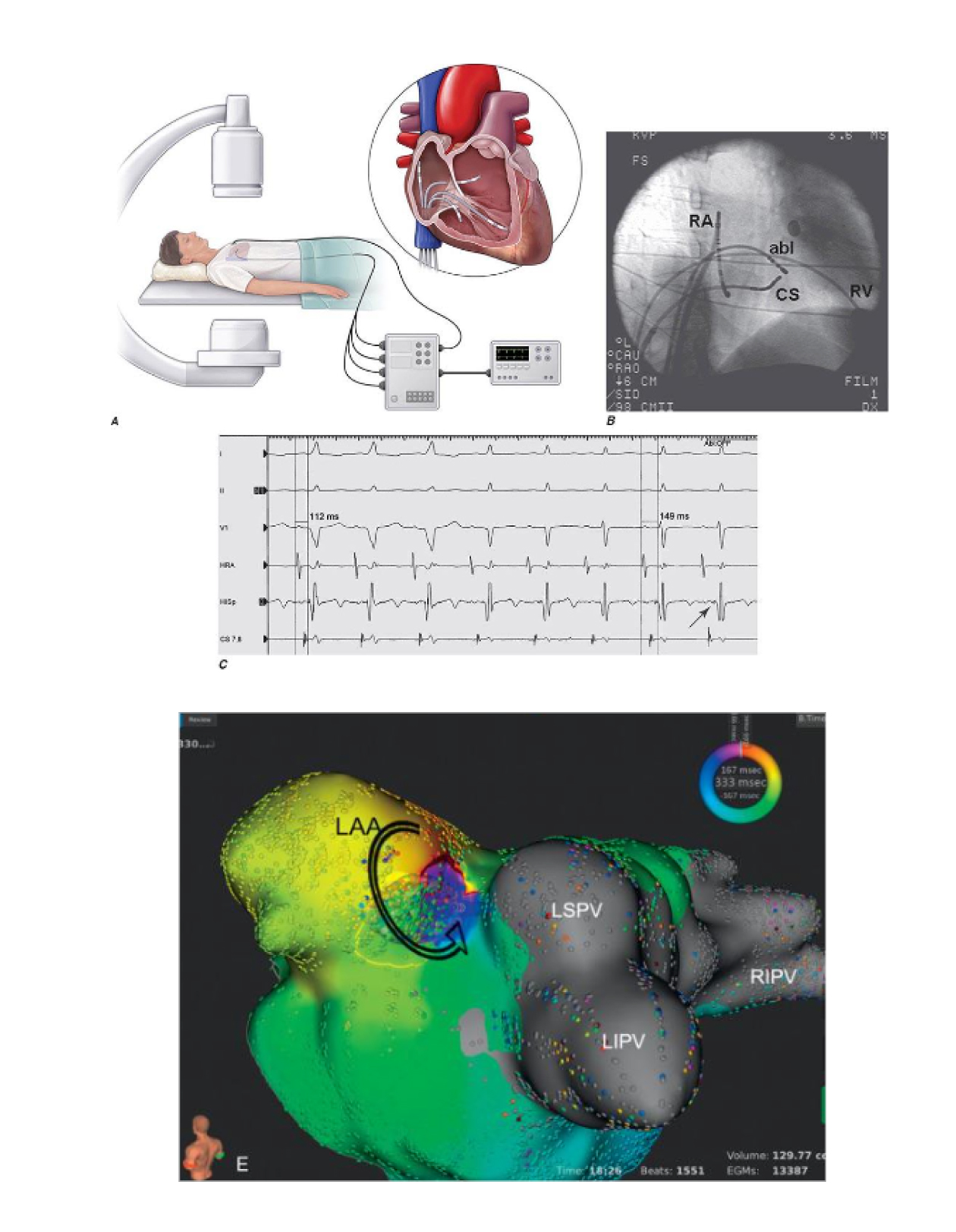What is an electrophysiological study?
An electrophysiological study is a diagnostic examination used in electrophysiology to analyze the electrical properties of the heart in patients with arrhythmias. Its goal is to understand the underlying mechanisms of the arrhythmia and determine the best medical or ablative therapy.
How is it performed?
Lo studio elettrofisiologico si esegue introducendo dei piccoli elettrodi filiformi all’interno delle camere cardiache attraverso i vasi sanguigni inguinali.
The study involves introducing thin, wire-like electrodes into the heart chambers via the blood vessels in the groin. Patients are typically awake but receive local anesthesia at the insertion site. In some cases, sedatives are administered to maximize patient comfort. Once advanced to the heart, the electrodes record cardiac electrical potentials and stimulate the heart internally.
These maneuvers allow the electrophysiologist to identify in detail the electrical abnormality causing the rhythm or conduction disorder. A diagnosis is reached by integrating this data with information from the patient's history, electrocardiogram, and imaging studies (e.g., echocardiogram, MRI, or CT scan). Modern electrophysiological studies often include electroanatomic mapping, which reconstructs the detailed anatomy and electrical activation of the heart chamber without requiring X-rays. If deemed necessary, catheter ablation of the arrhythmia may be performed during the same session (Fig. 1).


